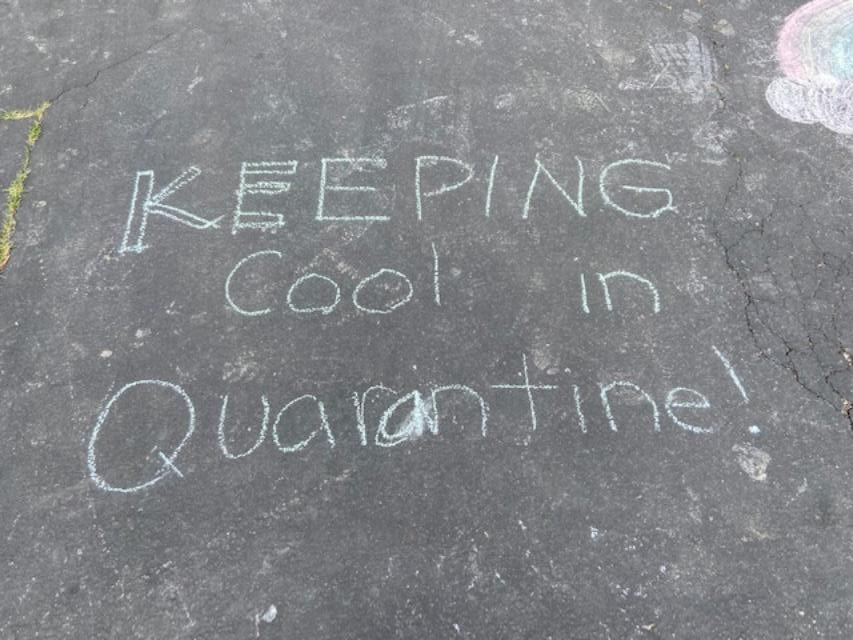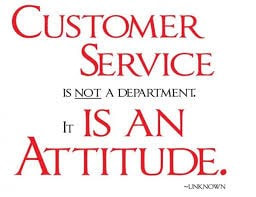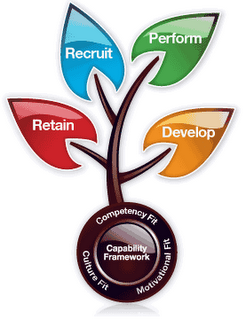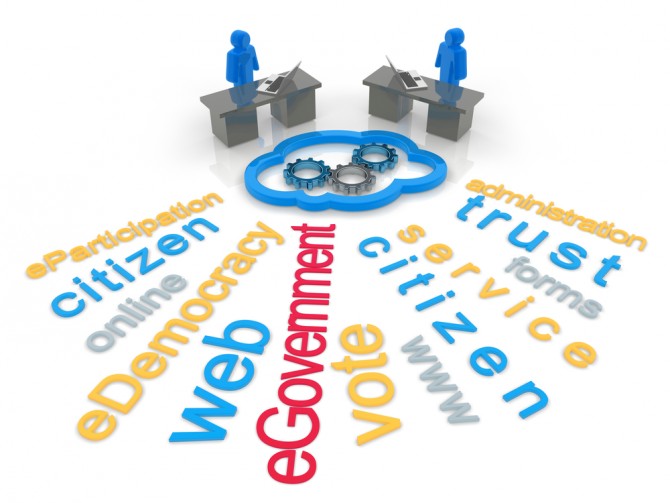|
Special PRAYER and THANK YOU to those who were wounded and Lost their Lives in the process of preserving and protecting our Freedom. Also, Please Honor, Remember and Never Forget all the Men and Women who served in the military and Sacrifice to Preserve our Freedom, including my Father, my Husband and my Son .
2 Comments
As I walk around my and other neighborhoods, I am pleased to see plenty of inspiring messages everywhere; in sidewalks by kids creating art with chalk; in homes, where people are sharing written messages and also, placing bears on their window so that kids and all of us can enjoy.
However, what gives me goosebumps is the fact that there’s probably not one single street in these neighborhoods without a beautiful American Flag waving in front of their homes. It’s a visual symbol that articulate without a voice that we are all in this together, no matter how bad it is or how bad it will get. If there’s anything positive that this unfortunate virus has done, is to make people more caring, sensitive and concern about their fellow human being. Neighbors calling senior neighbors to inquire about their well-being or offering to grocery shopping or to help them in any way. Furthermore, it is the new love that developed for our first responders. They have been here all the time, risking their lives, protecting us and caring for the sick. Finally, we acknowledge them with an abundance of love. There is also the unexpected. For instance, the other day I was standing to cross a main road and hesitating about whether I wanted to go east or west. There were not a single car going either way. Suddenly, about half a mile down the road, a pickup truck appeared, speeding. He saw me from afar, slow down and stopped about a hundred feet from me so that I could cross the road safely. He did not have to do that at all. His act almost brought me down to tears and reminded me that there are so many good people around us that we have not been able to see before because we have been so involved in our fast paced lives; texting, FB, Snapchat, Twitter and the such, that we didn’t care for anything or anyone “purposely”. So in spite of the fact that a terrible thing like COVID-19 is here, I feel positive that it brought us back to humanity and the years that we were compassionate citizens as a nation. I am so happy and fortunate to live in our country, where we love, care and respect our fellow citizens and what our country stands for; LOVE, LIBERTY AND JUSTICE FOR ALL! In my opinion, I believe that some companies get so powerful and rich that they forget the primary reason why they got there in the first place; their CUSTOMERS.
I have worked for Fortune 500 corporations, Federal and local governments as well as the nonprofit sector. I don’t recall ever not having a customer oriented mind. Respecting my customers, from my top rich and powerful doctors, to the most vulnerable and hopeless homeless person was always my commitment. To me they are all at the same respect level and they will always be. Going back to companies, it’s the responsibility of top executives to create a culture of excellence by educating their employees. That culture begins with the importance of customer service. Product knowledge and/or services offered should follow that. I just had a bad customer service experience with a huge company that obviously underestimated my knowledge and abilities. However, since I have a voice, and I felt it was my responsibility, I took action immediately, leaving them baffled. I also gave them a lecture for not providing adequate training to their employees, hence, they failed to represent their company accordingly to my standards. All this to say that as customers we should be treated with respect and companies must convey that message strongly to the employees that are in direct contact with their customers. I am just saying! HOW SAFE IS OUR WORKPLACE TODAY? What can we do to be prepared, protect employees and customers?7/17/2017 Have you ever thought about going to work expecting something really bad to happen? Of course not, going to work daily is part of a mechanical process. It starts when we wake up in the morning, make breakfast, prepare lunches to go, take the kids to school, check our iPhone texts “some of you while driving in stressful rush hour”, and before we know it, we arrive at work. We are already stressed out and a day full of problems is about to start.
Unfortunately, life has changed. The sad truth is that we are not safe anywhere anymore. To give you an idea:
I will leave it there because the list of unsafe places is too long. However, let’s go back to the workplace. Nothing can prepare us better for these unpredictable tragedies than knowledge and Awareness. Yes, there are few things that we can do to prevent or to escape some of the dangers that we constantly face safely, if we are prepared. However, what shall we do?
The current potential acts of violence that we are facing today are extremely challenging for both, the public and private sectors and therefore, requires a myriad of non-traditional strategies to be prepared in the event that your office, agency, or building, either private or public, is unfortunately targeted for unexpected violence. A. Baby Boomers: Should You Retire Now or Should You Stay Employed? B. Generation X and Millennials: It's Never Too Early. Since You Are Young Today, what are Some of the Basic Steps that You Must Take Now to Prepare for Tomorrow. Retirement is the ultimate goal for anyone working today. It is perhaps something that you've been pondering for a while. The fact is, you have been working most of your life and it may be time to move on and provide job promotion opportunities for the younger generation. Perhaps, you dream about sleeping late and not having to deal with traffic or bad weather, especially during the rush hours. However, even though you want to move forward with that goal, you are also concerned about making a wrong decision. That is reasonable, since making that decision can be somewhat frightening and intimidating as it is dependent or subject to a myriad of deliberations that can trigger plenty of mix feelings. You have been employed for three decades or more. During that timeframe, you have developed a routine that will need some time for adjustment. Are you ready emotionally to handle these adjustments? What will you do with that much free time? Will you feel isolated? Is your nest egg strong enough to support your current life style during retirement? On the other hand, perhaps there are reasons that may be pressing you to retire. Maybe your parent’s or spouse health is in need of someone to care for them 24-7; or maybe your own health is pushing you to make that decision sooner rather than later. When these factors are the reason, then age or length of time in the workforce will mean nothing, since retirement will move to your #1 priority. Regardless of what motivates your retirement thoughts, there are basic steps that have to be considered before making the final decision. For instance; Finances: Did you develop your nest egg according to the life style that you would like to enjoy? In other words, did you start putting money away and investing wisely years earlier? Health: Are you in good health now; physically and mentally. Do you exercise and eat well? (If not, what type of health insurance will you be depending on? Hopefully not just Medicare.) Family and Friend: Do you have a network of friends to share time with? How about family relationships? Isolation is worse than death. Furthermore, it’s been said that sharing time with others reduces the chances of dementia. Community: Have you done volunteer time in the community before? Are you willing to do it now? Retirement Bucket List: I personally believe in serious planning for everything in life and one important step that anyone considering retirement should do BEFORE RETIREMENT is to prepare a “Retirement Bucket List”. This document will keep you current, mentally sharp, happy, and with a sense of belonging and fulfillment. No plan means confusion and lack of activity that will make your days long and boring. Here are some ideas to include in your “Retirement Bucket List”: 1. Learn a new language or a new skill. 2. Read more often and visit your local library, you won’t regret it. 3. Begin an exercise routine, could be walking, running, joining a gym or other type of workouts. 4. Travel. Where do you want to go? Travel as much as you can afford, even by car. 5. Volunteer at your local church or nonprofit, it will make you happier to know that you are making a positive contribution. 6. Entertain family and friends, often. Remember, it will help keep dementia far away. 7. Keep your Calendar of Activities up-to-date and stick to it. Well, you get the drift. These activities will keep your brain functioning, your life structured, and will keep you happy. The last thing you want to do is nothing! PART 2 OF 2
(FROM YESTERDAY’S POST: GOVERNMENT) 3. How to improve poor communication between managers and subordinates? The sad reality is that many managers are not equipped with the necessary skills to manage people because they were promoted to the position based on their technical skills. It is the responsibility of the head of the agency to ensure that whoever is appointed to lead, manage or supervise people has the necessary skills to do it. The skills that I am referring to are not job-related or technical skills. I am referring to people's skills, which includes skills to connect with others, having empathy, compassion, being considerate to understand that not all people are created equal, and that not all humans have the same interest or motivation. They also have personal problems that often times affect their performance. It’s not about sitting behind the desk and spending the day sending or giving orders by email. A manager who does not make an effort to connect with his/her people and see them as humans is bound to fail. 4. How to improve mediocre performance of "permanent" employees. As a manager I was responsible for getting the job done and meet my organizational goals, but in the process and not listed on my job description, I took it upon myself to also be responsible for providing guidance, mentoring, training, counseling, and I was always available to hear their concerns. Your responsibility as a manager is to provide your team with the necessary tools to do the job. However, after all your efforts have been exhausted, if there is no improvement, then it would be your responsibility to decide whether termination is necessary. PART 1 OF 2
At a gathering with some friends, I was asked a question about "Government": What are (in your opinion) the most pressing issues facing the public sector these days? Since until recently I was a government employee, I gathered my thoughts for a moment, and provided the following answer: In my opinion the public sector, which includes local and Federal governments, is currently confronted with a myriad of problems. That in turn affect the quality of the services that they are responsible for providing to the general public/citizens and customers. I believe that the four important basic questions that leadership must address are: 1. How to avoid the exodus of skilled and talented people to other agencies or to the private sector? My answer is that money is not everything. Often times we do not use our workforce to the maximum of their abilities. I underline abilities and did not mention responsibilities for a reason which I will further elaborate. Even worse, sometimes managers have the tendency to keep a clear separation between them and some of their subordinates, which often times, makes subordinates feel unappreciated, undervalued, unrecognized, underestimated and stuck in the job. One simple idea to take advantage of their individual abilities is by assigning them to facilitate crucial meetings or to "represent" management in important meetings in other agencies; or assigning them to develop a workshop about their trade to be used agency wide. Sound simple, but it requires management involvement in getting to know his/her team in order to identify his/her abilities. Furthermore, subordinates feel valued and appreciated. 2. How to manage the impact of losing institutional knowledge, caused by the exodus of Baby Boomers that are currently retiring in large numbers? My answer is that if you have not started yet, it is time to get started on pairing experienced employees to serve as mentors of current younger employees. This can be done by requiring young employees to shadow their mentors for a determined period of time, which could effectively provide them with a genuine hands-on experience. Also, request that the mentor provide a plan of the areas to be covered, and a subsequent report of areas that were actually covered. It should be meaningful so that management gets confirmation that actual knowledge and experience is being communicated. TO BE CONTINUED TOMORROW… As managers, we are responsible for ensuring that the work gets done correctly; that the established goals are met; and the organization’s overall performance and employee’s morale are high. These are not easy responsibilities to carry, particularly if you are managing a workforce that is diverse on skills and personalities, and has long- existing poor habits.
To succeed in establishing and maintaining a smooth operation, managers in general must possess a keen knowledge of human behavior. We all know that delivering bad news to someone is not something that we look forward to. However, to keep that work place “operational”, we must tackle the roots of the problems heads on. I am not a strong supporter of the employee performance appraisal when it is used only once-a-year to communicate all the weaknesses to an employee at once. That is customarily followed by a series of corrective actions with time frames to complete, with the expectation that this “punishment” (a negative appraisal) will bring positive resolutions. When you don’t address matters that are supposed to be discussed as they happened during the course of the year, you are not doing the organization or your employee any good. In fact, the longer you wait to address matters, the harder it will be to fix them and the chances of making it worse will be higher. Why? Mainly because the employee will see it as punishment, reprisal and perhaps discrimination. In the end it will affect your bottom line. When an employee’s performance decreases, managers must tackle the issue(s) at stake immediately. If you are a good leader, chances are that you will have an idea of the possible root of the issue. However, if not, it may be that you are not being in touch with your staff the way you should. Regardless of when you do it, when it is time to address poor performance or behavior, the best way to do it is by calling the employee to a private one-on-one meeting to find out if there is any problem that is affecting the employee’s performance and reassure the employee that part of your role as a manager is to help him/her to be successful. Always remember that your employees are humans and not machines. As humans they are bound to make mistakes that without intervention could drag on their weaknesses or shortcomings for too long. YOU DEPEND ON THEM to move your operation forward. If you don’t take the initiative to break this cycle, no one will because you are their leader. If you don’t address problems early on, then don’t be surprised if the organization that you are leading or your workplace collapses before your eyes. MEMORIES FROM FEBRUARY 2016: STOP Judging People; Instead Treat Everyone with the Utmost Respect!2/8/2016 Just recently my husband called a well-known company to request a refund on an overcharge in our credit card. He was as always polite and respectful over the phone. A male attendant so well-mannered and courteous answered and indicated that he will have to transfer the call.
Background: Before I describe the incident that happened next, let me just tell you a couple of things about my husband. First, he is extremely respectful and fair to everyone. He is a lawyer and a Senior Executive Judge in the Federal Government. Furthermore, he has always been humble and unassuming, and will never make reference to his professional position. The Unfortunate Incident: Back to the company; the call was transferred, a female answered the phone nicely and asked him how she can help. My husband, who has an accent, begins to explain the overcharge and is interrupted abruptly by this lady in a terribly condescending manner. While he was trying to explain the matter, she kept interrupting and using statements like, “stop talking and listen to me, I said quiet, hear me” and raising her voice at times. Finally, she hung up on him. As any lawyer would do, he immediately wrote a letter to the president of the company describing the situation. A call from the office of the President of the company was made to him a few days later apologizing for the unfortunate experience. He was sent the full refund of the prior over charge and was offered a free travel service the next time he travels. He expressed deep appreciation for the call, the apology and the refund, but respectfully declined to accept the free service, since it was not the point. I am telling this story to create awareness of a double standard that at times some ignorant people have to belittle and mistreat others simply because they hear an accent. They presume that a person with an accent is uneducated, worthless and can be disrespected. I truly believe that this would have not happened if instead she would have seen him in person, in his dark suit and tie, briefcase in hand, handsome, but still with an accent. She would have treated him in a different manner. Lesson to learn: Everyone must be respected regardless of an accent, color of the skin, disability, financial status, sexual orientation, religious beliefs or how they look! Customer service is a popular motto that has been used for many years in the public and private sectors. It was developed with great intentions. All the recipients of customer services, whether they are internal or external are 100 percent supporters of the motto. However what is the reality behind this whole thing?
The unfortunate reality is that even though these sectors will never succeed without a strong implementation of a solid plan for excellent customer service, management does not have 100% control of how well this plan is actually executed by each individual. Often times, both sectors conduct customer surveys to obtain feedback on how well their customers are being served. Other times sporadic workshops or training's are conducted to educate employees about customer service. To me, there is a more critical and essential way to ensure that customer service will be executed consistently on a daily basis. That comes only by hiring the best, educate them and randomly test them for any adjustments that may be necessary. If management is lucky enough, the person hired will come with skills that are not taught at work such as integrity, genuine commitment, honesty and pride in doing not only the job, but the best job plus, going above and beyond of what the job entails. These employees that I am taking about ARE NOT those that when given a task are focused primarily on executing it, but on whether they are responsible to do it or not. Therefore, their immediate response, although not articulated is ”that it is not in my position description”. Trust me; you do not need those employees. There are plenty of them around that are stuck in a limbo, often times blaming everyone for their incompetency and lack of commitment. The main problem with characters like these is that they not only provide meager customer service, but tend to have a negative influence on others by poisoning the environment. So, make sure that when you hire people you use that internal “intuition” sense. That will be the key in hiring the best candidates that in turn will provide real internal and external customer services. Finally, don’t forget that your employees are not machines. Most people are not self-maintain. If you take good regular and consistent care of them and train them well, they will take great care of your business or government agencies as well. |
ABOUT THE AuthorI am a blogger, a photographer, a jewelry designer, a gourmet cook, and a recipe book writer. I am also a flea market flipper, an avid gardener, an interior/ outdoors designer, an avid golfer and traveler. Archives
May 2020
Categories |




























 RSS Feed
RSS Feed